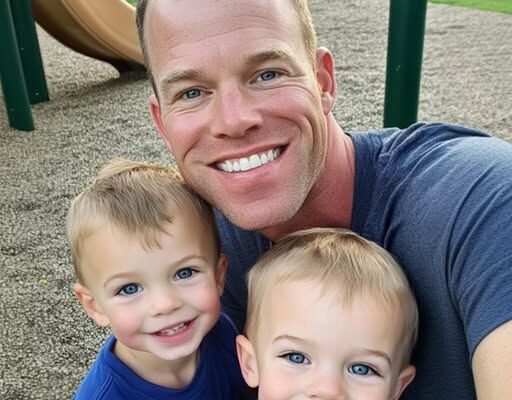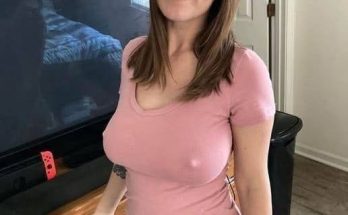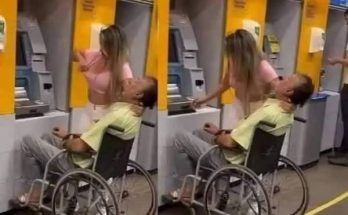When Anna walked out that day, she didn’t just leave me — she left our 4-year-old twins too. All she said was, “I can’t do this anymore,” and then she was gone, suitcase in hand. I stood there holding our kids, broken and jobless, with no idea how I’d keep us afloat.
The months that followed were brutal. Unemployment barely covered the essentials, and I picked up any odd job I could find. The twins were my anchor — their tiny hugs and bedtime whispers of “We love you, Daddy” were what got me through the darkest nights.
A year in, things began to shift. I landed a stable IT job, found us a small but warm apartment, and slowly got back on my feet. We were healing. We were stronger. Life was no longer survival — it was starting to feel good again.
Then one afternoon — exactly two years since she left — I spotted her.
I was working in a café when I noticed a woman in the corner, wiping tears from her face. It was Anna. Her hair was tied up messily, her face bare. She looked worn out — not aged, just… heavy with something.
She looked up, met my eyes, and froze.
I walked over, heart racing. “Anna? What’s going on?”
Her voice was soft. “I didn’t think I’d ever run into you.”
I sat down, not waiting for an invitation. “You left us. Now you’re here. Crying in a café. So what happened?”
She hesitated, then whispered, “I panicked. I thought I was drowning, and instead of holding on, I let go.”
My anger flared. “You didn’t just let go. You disappeared. The twins cried themselves to sleep every night for months.”
Tears filled her eyes. “I know. There’s no excuse. I was scared and selfish.”
I should’ve walked away. But something kept me in that chair — maybe I needed closure. Maybe I needed answers.
She told me she moved to Denver, lived with a friend, got a job at a bookstore. She tried to block out the pain, but it followed her — through every missed birthday, every milestone she wasn’t part of.
Then she got sick. Not life-threatening, but serious enough to make her realize she had no one left. That’s when everything caught up with her.
“I didn’t leave for anyone else,” she added quickly. “There wasn’t another man. I just wasn’t strong enough.”
I didn’t respond right away. The silence between us said enough.
Eventually, I told her the kids were okay. Thriving, actually.
She asked, “Do they hate me?”
I shook my head. “They don’t really talk about you. I think they buried it. But no — they don’t hate you. They just don’t know you.”
That hit her hard. She sobbed openly. I didn’t comfort her. That wasn’t my place anymore.
A week later, she reached out again. Asked if she could write to the twins. I said I’d consider it.
Eventually, I agreed to a meeting — public place, on their terms.
When I told the twins, they were quiet. My daughter Mira asked, “Why now?” My son Jonas just shrugged.
I left it up to them.
Three weeks later, we met Anna at a park. She came with simple gifts — books, and a scrapbook of old photos.
Mira clung to me at first. Jonas asked practical questions. But after a while, Mira looked at her and asked, “Why did you leave?”
Anna didn’t flinch. “Because I made a terrible mistake. And I’ve regretted it every day since.”
There were no hugs. No dramatic reunions. But they listened.
And that was enough to begin something.
Over time, she became part of their lives again. Small steps. No pressure. Just showing up — every month.
It’s been two more years. We’re not together, but we’re at peace.
The kids know her now. They understand she failed them once, but she’s trying. And sometimes, that matters more than perfect.
Because broken doesn’t mean done. And healing doesn’t always look like a happy ending — sometimes, it just looks like honesty, effort, and showing up.



